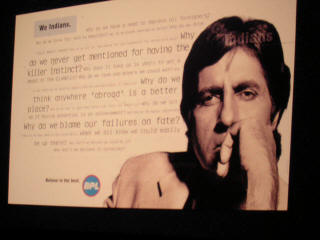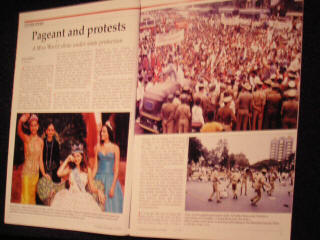
This presentation is set against the backdrop of neo-liberal policies of economic reform instituted in India in 1991. I examine the decade of the 1990s as a period of dramatic change from prior decades of Independent India. I suggest that with the opening of the Indian economy in conjunction with the privatization of television the very meaning of India came to be debated in the 1990s.

I examine this debate about the meaning of India through three sites of public political debate that span the decade, television (1994), the Miss World Pageant (1996), and the nuclear tests (1998). In these sites the debate around Indian nationhood is deeply gendered and sexualized.

I argue that with imbrication of the Indian political economy in globalization there has been a qualitative loss of control over the sovereignty of the country. As a consequence, efforts of compensate for this loss of control have resulted in efforts to establish other measures of control over aspects of the nation such as identity, gender, and history.

